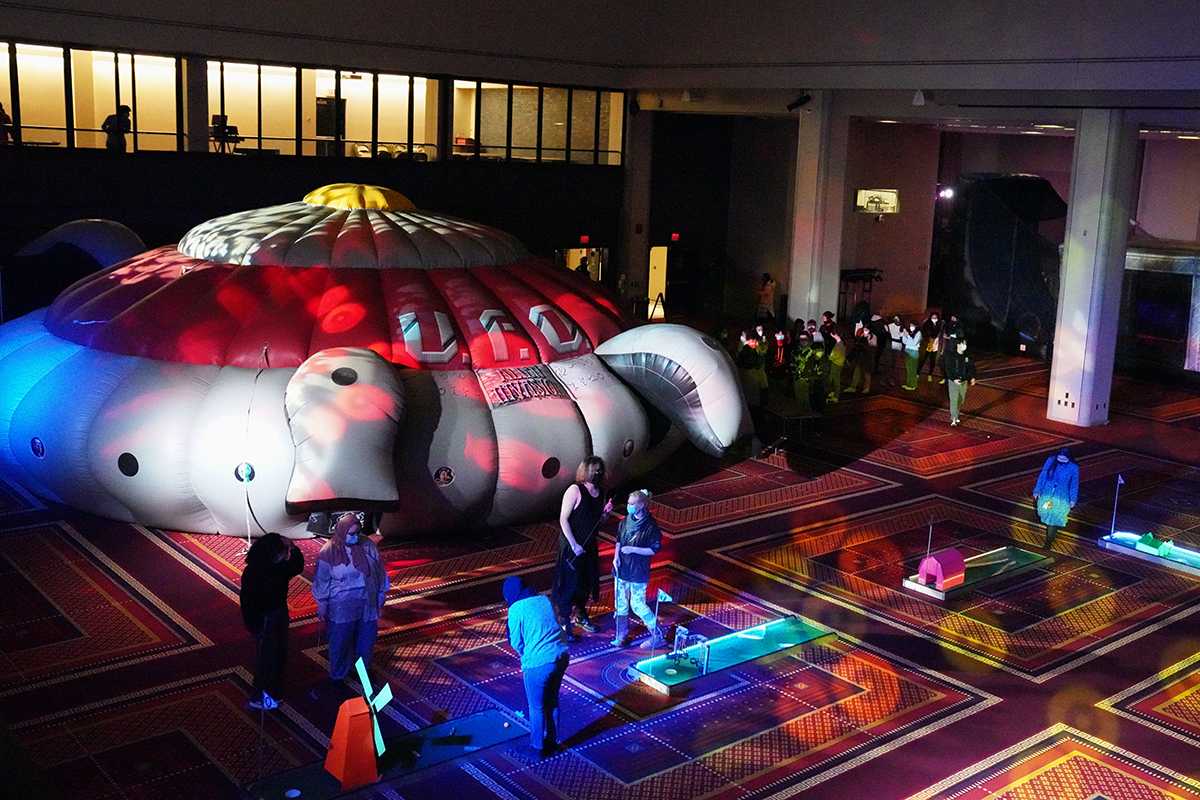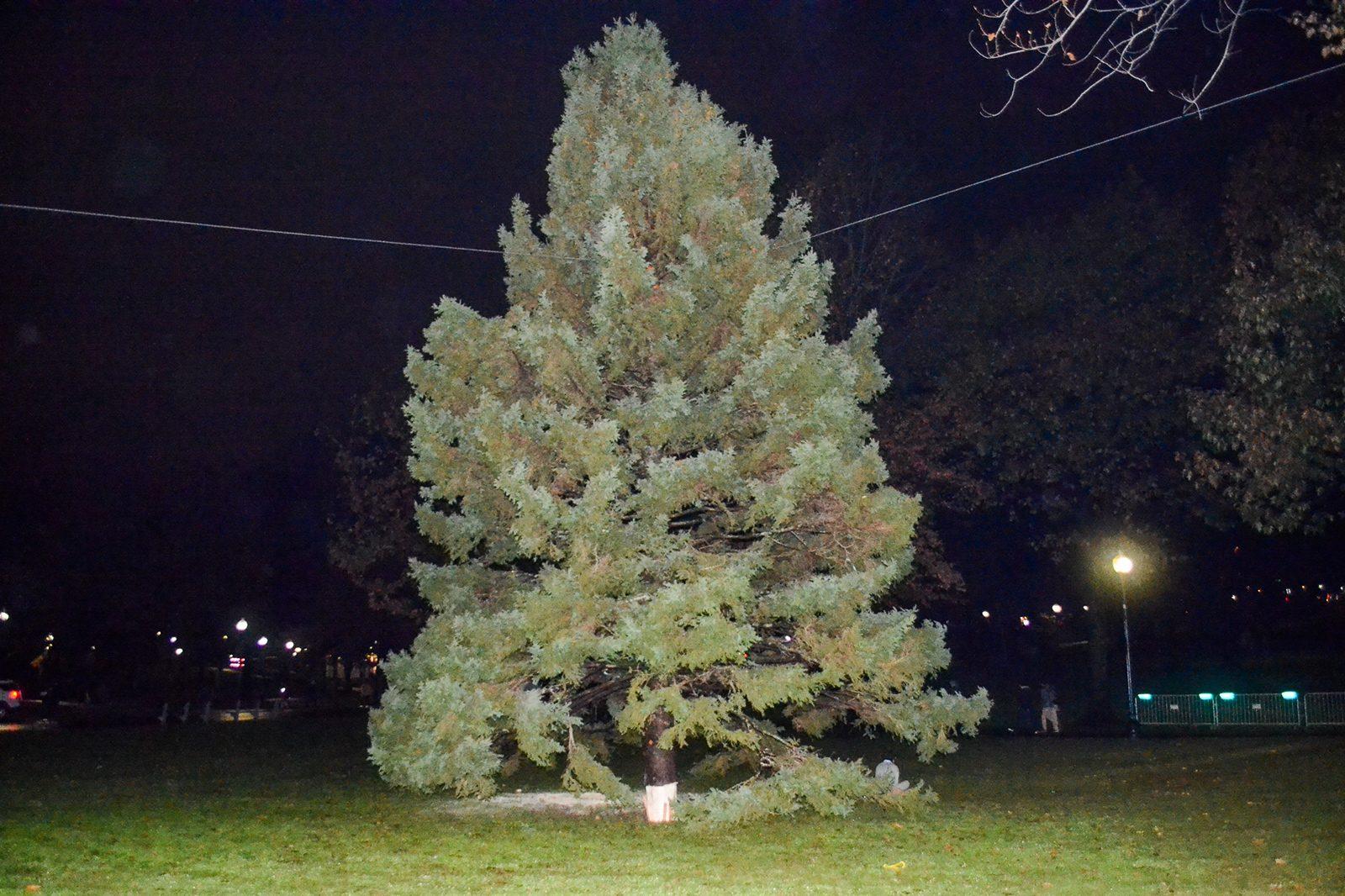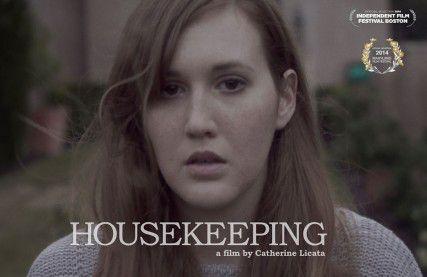A few months after his first release, Heartland, under his own name, Owen Pallett, formerly known as Final Fantasy, embarked on a tour of various theatres, museums and festivals, bringing little more than a keyboard, violin and loop pedal to recreate the orchestral treats found on the album. Pallett also has a guitarist and percussionist, Thomas Gill, accompanying him, to make his sound a little sturdier, since a full orchestra is difficult to take on tour.
Pallett played at the Institute of Contemporary Art on April 20, against a backdrop of the harbor through the ICA’s glass walls, which was fitting for his epic compositions.
Opening for him was Toronto’s Snowblink, which, like Pallett, used looping effects to make its folky, vaguely psychedelic sound denser, and while the musicians certainly have the chops to play like Pallett &-&- a classically trained violinist &-&- their songs don’t develop quite as richly.
For example, a lengthy and dreamy passage of music may be capped off with several complicated layered melodies from vocalist Daniela Gesundheit, but it doesn’t feel like quite the revelation she seems to be aiming for. The grandiose arrangements outdo the songs themselves, so the audience is left impressed, but with little to recall.
Pallett opened his set solo with a particularly melancholy cut from Heartland, “E Is for Estranged,” which was stripped down for the live setting, sounding almost skeletal as Pallett topped a looped chord progression with his floating vocals.
He also had a chance to show off his skill almost immediately as he looped a complicated violin riff in a ghostly round with itself to close out this moving opener before easing seamlessly into a standout from his debut Has a Good Home, “This Is the Dream of Win &’ Regine,” which was carried by flickers of synthesized violin choruses.
After a slowly unfolding rendition of “That’s When the Audience Died,” also from the debut, Pallett introduced Gill and noted that they would be playing only songs from the new album (“Because, well, they’re better”), almost shyly and always graciously.
The pair then hurried through almost all of the highlights from Heartland, starting from the pattering, sometimes almost impossibly fast “Midnight Directives,” speckled with nimble extra percussion, then “Keep the Dog Quiet,” which took shape gradually but intensely from its seemingly off-beat intro, then to the fiery and brief “Mount Alpentine.”
“The Great Elsewhere,” one of the longer cuts from Heartland, was a highlight, spiraling in and out of the noise of “Alpentine” with a complicated, stuttering keyboard melody.
As Pallett pieced the other parts of the song together, the effect was jigsaw-like, as his own playing complimented what he had just looped, see-sawing back and forth between live and recorded. His voice always cut clear through the barrage of strings, keeping the focus on his clean vibrato.
After a jaunty rendition of first single “Lewis Takes Action,” Pallett explained his method a bit, noting that he tried to use prerecorded instrumentation as little as possible. Because of the live looping, the audience might hear some “snaggletooth gremlins:” that is, sometimes loops would not fall into place just right, and to start the song over to realign the parts would be exhausting for everyone involved. Despite sometimes missing half a beat in the loop, Pallett powered through these off-beat slivers, cutting a note in half when necessary or occasionally hastening his pronunciation.
Pallett then started off with “He Poos Clouds” a crunchy, prerecorded drum beat, developing into a bubbly lap-pop tune and dropping lines about all his loves having been “digital.” He kept up the energy with the lively fanfare of “Flare Gun” and the bouncing but delicate “The Butcher.”
“Many Lives -> 49MP,” from second album He Poos Clouds, was almost jig-like in its speed but in a disorienting 5/8, with Pallett recording a call-and-answer with his own voice into the violin pickups, then joining the guitarist for an intricate and complicated unison outro.
Pallett’s last two songs, however, were by far the highlights. “Lewis Takes Off His Shirt” saw Pallett build from an extraordinarily complex chord progression on keyboard to one of his most triumphant melodies, taking a moment to roar over his violin before launching back into the loop. He even incorporated a mellotron bit based on his own voice that he had left out of “Lewis Takes Action” &-&- almost as an inside joke with the audience.
“This Lamb Sells Condos” is often Pallett’s choice for encore or closer, and fittingly so, as it is possibly his best written and features one of his most indulgent and memorable melodies. Unfortunately, the efforts to add extra instrumentation at every turn flopped slightly, as Pallett was joined at the chorus by the guitarist’s whistle, somewhat cheapening the effect. However, the song is one of Pallett’s most wistful and haunting, so it could not be derailed by what was essentially a decorative fluke.
After a false start during his closing song, Pallett noted that, being a violinist, he “doesn’t know how to work a keyboard.” Being such a gracious and humble performer certainly adds to fans’ desire to see his live show multiple times, but overall Pallett is one of the most innovative and skilled musicians around today, bringing ornate arrangements to everything he touches. His live show is mesmerizing and absolutely unforgettable.

























































































































